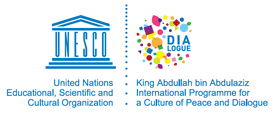Article 19 of the Universal Declaration of Human Rights states that 'Everyone has the right to freedom of opinion and expression; this right includes freedom to hold opinions without interference and to seek, receive and impart information and ideas through any media and regardless of frontiers.' … Read More
-
MISSION STATEMENT
This website provides access to an international, multimedia and multi-language media and information literacy (MIL) teaching resources tool for educators, researchers and individuals. The tool contains interactive and intercultural teaching resources proposed for use in formal and non-formal educational settings. The resources can be shared, adapted, used and re-uploaded by users at will. They are organized around the model Media and Information Literacy Curriculum published by UNESCO and which is available in 9 languages. The aim is to facilitating intercultural/interreligious dialogue and mutual understanding through MIL. Registered users are invited to submit resources and opinions relevant to the different modules and units of the Curriculum.

-
Mission Statement
This website provides access to an international, multimedia and multi-language media and information literacy (MIL) teaching resources tool for educators, researchers and individuals. The tool contains interactive and intercultural teaching resources proposed for use in formal and non-formal educational settings. The resources can be shared, adapted, used and re-uploaded by users at will. They are organized around the model Media and Information Literacy Curriculum published by UNESCO and which is available in 9 languages. The aim is to facilitating intercultural/interreligious dialogue and mutual understanding through MIL. Registered users are invited to submit resources and opinions relevant to the different modules and units of the Curriculum.

Foreword
We know that freedom of expression is a crucial element in democracy, development and dialogue – without which none of these would function or flourish. Freedom of expression is a universal right to be enjoyed by all. Everyone has the right to freedom of opinion and expression; this right includes … Read More
Framework
Based on the recommendations of the UNESCO expert group on MIL3 and the modules developed in the curriculum to accompany the framework, three key interrelated thematic areas have been delineated as the broad curriculum areas under which the MIL curriculum for teachers is framed. They … Read More
Submit a resource
Unifying Notions of Media and Information Literacy
The UNESCO MIL Curriculum and Competency Framework combines two distinct areas – media literacy and information literacy – under one umbrella term: media and information literacy. It moves from what the terminologies mean individually, as shown in Figure 1,1 to a unified notion that embodies … Read More
Core Teacher Competencies
Table 2 provides broad curriculum goals and associated teacher skills. These skills reflect the core competencies that teachers are expected to acquire and demonstrate under each of the elements of the MIL curriculum framework. In assessing the extent to which teachers have developed skills relevant … Read More
Benefits and Requirements of MIL
Media and information literacy enhances the capacity of people to enjoy their fundamental human rights, in particular as expressed in Article 19 of the Universal Declaration of Human Rights, which states that ‘Everyone has the right to freedom of opinion and expression; this right includes freedom … Read More

